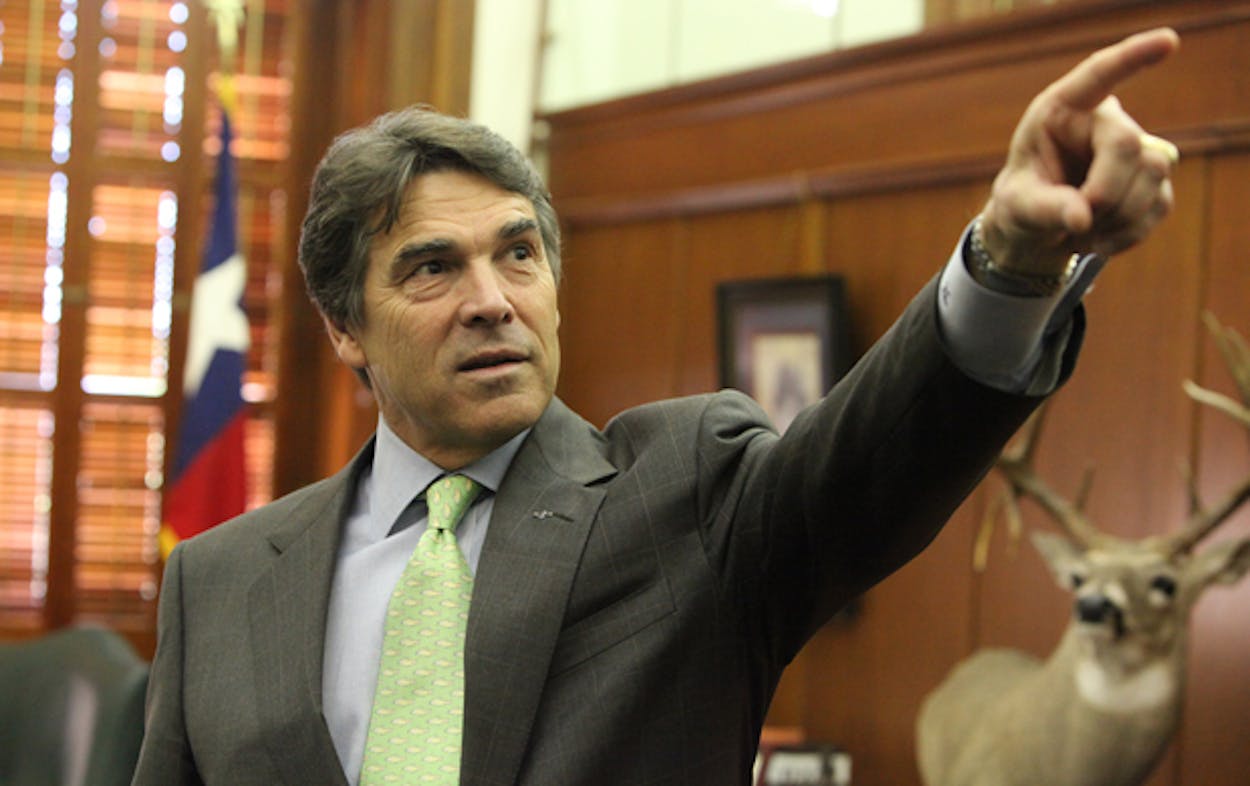A week after Rick Perry’s campaign for president came to an official close, pundits and pollsters are still unpacking the damage his blunders on the trail has done to him at home.
A new poll reveals that a full 56 percent of registered voters think Perry should not seek another term in 2014, but perhaps more devastating for Perry is that only forty percent of Texans approve of his performance as governor, a number that is a full three percentage points below President Barack Obama’s approval rating in the state.
“He clearly hurt himself with this run,” pollster Mickey Blum told the Austin American-Statesman. “He didn’t do himself any favors at home.”
Corpus resident David Burt, who was one of the 806 Texans polled over the phone about Perry, told the Statesman‘s Chuck Lindell that Perry’s blunders on the national stage make him vulnerable at home. “People will have the chutzpah to challenge him now,” Burt said.
Perry’s standing in the state was strongest back in 2002, when 65 percent of registered voters said they approved of the then-new governor, Peggy Fikac of the Houston Chronicle reported.
Pundits continue to wring out analysis from Perry’s campaign, with postmortems from the trail still pouring in a week after he left the race. Carrie Dann, an NBC News reporter embedded with the Perry campaign, penned a 2,700-word chronicle of the campaign from its promising start to the “last ungraceful throes of its death.”
Jim Henson, writing for the Texas Tribune, examines what Perry’s failure on a national scale means for his political fortunes in Texas. While voters’ confidence in their governor may have dipped, Henson writes that the “underlying fundamentals that buttressed Perry’s political power in the state” are largely the same as when he began campaigning for president. Perry, who doesn’t face the voters for three more years (if he decides to), can likely regain his position of strength:
[H]is relationship with the voters may be in a rut, but when it comes to the legislators, business interests, and interest groups who practice politics every day, to borrow from George Costanza, the governor has a lot of hand.
NPR’s Wade Goodwyn noted that Perry is helped by the fact he handpicked the leaders of the state’s “regulatory and political infrastructure.”
And in the Daily Beast, Bill Minutaglio sees that most damage to Perry’s position in the state can be fixed with some “glad-handing and … political patronage.” Ultimately:
Perry’s stumbles along the national trail probably won’t linger for very long—especially when he gets back to doing what he is good at: the grip-and-grin of retail politics, and the golfing and hunting with the power brokers and rainmakers.
- More About:
- Politics & Policy
- Rick Perry







